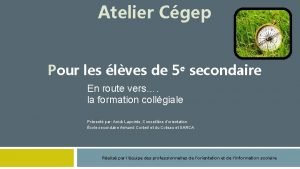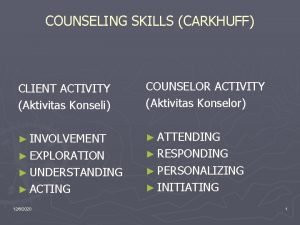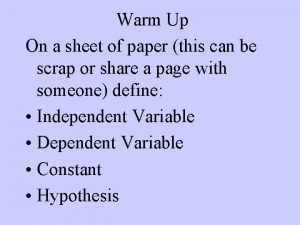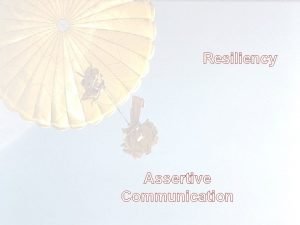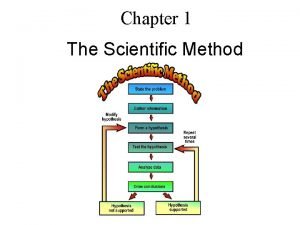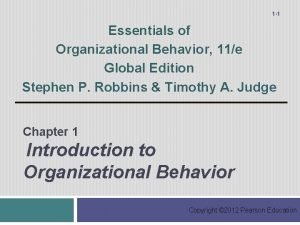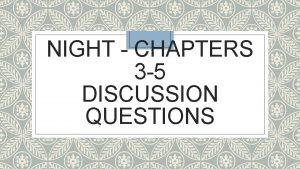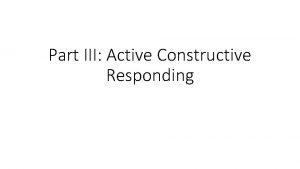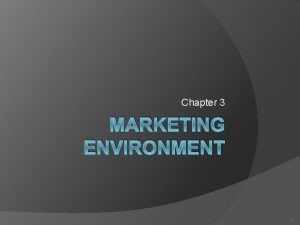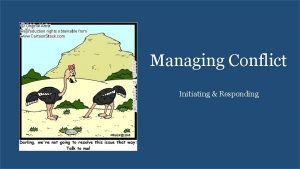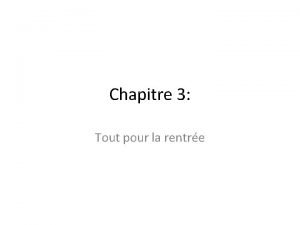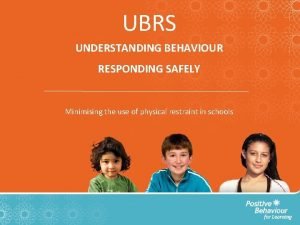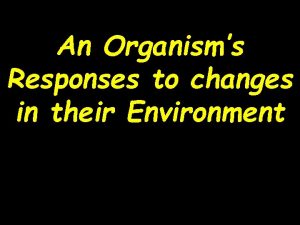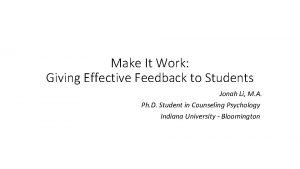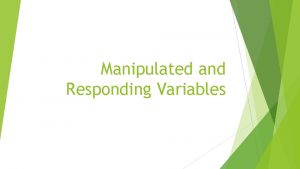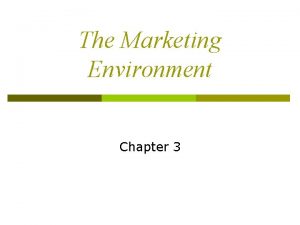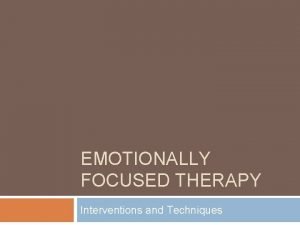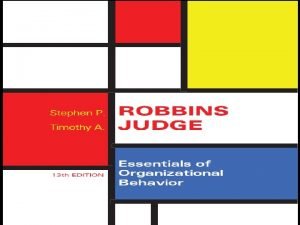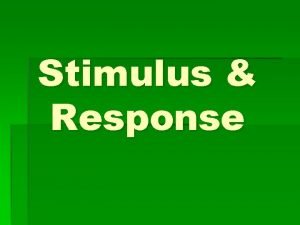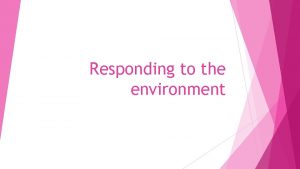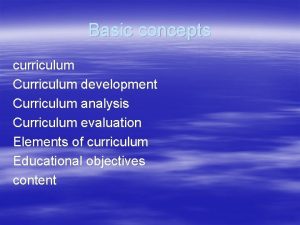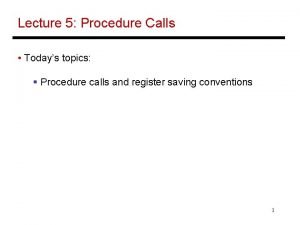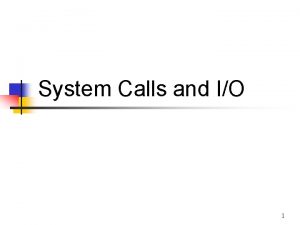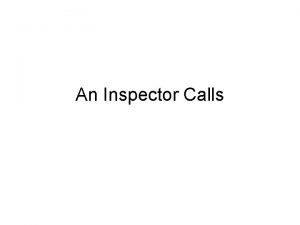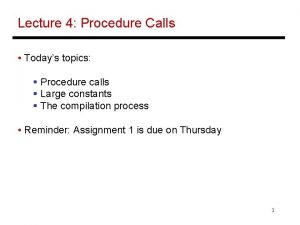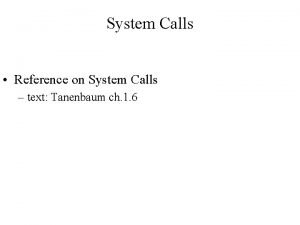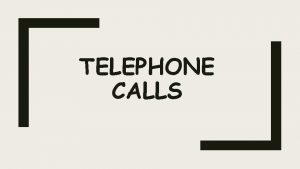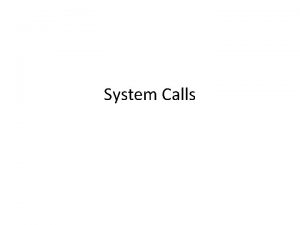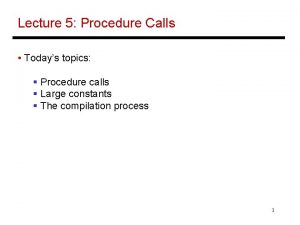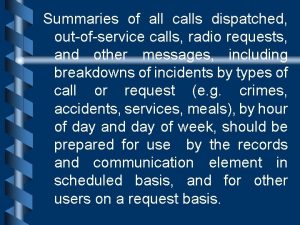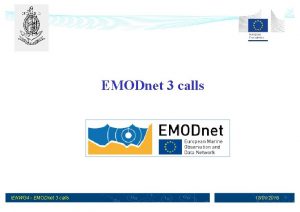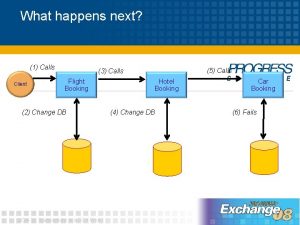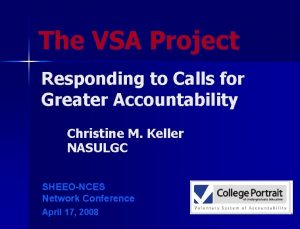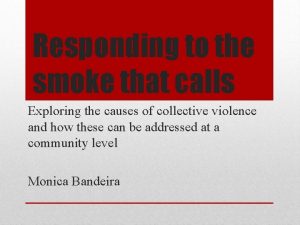The Cgep Curriculum Responding to the Calls to
























- Slides: 24

The Cégep Curriculum: Responding to the Calls to Action of the Truth and Reconciliation Commission of Canada AQPC Symposium Wednesday, June 7, 2017 Jacky Vallée, Vanier College

Teen Pregnancy and Indigenous “Victims” • An anecdote. . .

Truth and Reconciliation Commission (TRC) • Their work • Concept of “reconciliation” (Face to face) • Calls to Action

TRC Calls to Action and Education • Education (10): “. . . draft new Aboriginal education legislation with the full participation and informed consent of Aboriginal peoples. ” • Education (10. 2): “Improving education attainment levels and success rates. ” • Education for reconciliation (62 i): “Provide the necessary funding to postsecondary institutions to educate teachers on how to integrate Indigenous knowledge and teaching methods into classrooms. ” Source: Truth and Reconciliation Commission of Canada: Calls to Action (2015)

United Nations Declaration on the Rights of Indigenous Peoples (UNDRIP) and Education • Article 14. 2: “Indigenous individuals, particularly children, have the right to all levels and forms of education of the State without discrimination. ” • Article 15. 1: “Indigenous peoples have the right to the dignity and diversity of their cultures, traditions, histories and aspirations which shall be appropriately reflected in education and public information. ” Source: United Nations Declaration on the Rights of Indigenous (2008)

Points to retain • Current educational system fails Indigenous students and communities (discrimination, assimilation). • Responsibility to redress this failure: • Incorporation of Indigenous knowledges, languages, histories, achievements, pedagogies, and contributions to Canadian society. • Necessity of local community consultation.

How We Are Failing Indigenous Students • History of Indigenous education • Assimilation • Distrust • Shame • (Hare, 2011; TRC, 2015; Milne, 2016) • Eurocentrism in education • Invalidation of Indigenous worldviews (Battiste, 2013: Cognitive imperialism) • Good intentions: “Add and stir” / “Native culture” (sing. ) • Assimilation, distrust, shame • (Battiste, 2013; Goulet & Goulet, 2014; Smith, 1999)

Incorporating Indigenous Knowledges and Pedagogies • What are the barriers we face as teachers seeking to incorporate Indigenous knowledges and pedagogies into our curricula?

Some barriers • Institutional • Money and time • Numbers game • Systemic • Cycle of Eurocentric education • “Western Civilization” as a mandatory course in Social Science, e. g. • Personal • Internalization of institutional and systemic pressures • Lack of awareness • Perceived lack of importance / relevance • Feelings of powerlessness • Where do I even start? • “Good intentions”

Arguments Against Institutional Pressures “But we have so few Indigenous students!” • Indigenous histories are Canadian histories. • Not an “Indian problem”. • Indigenous rights are human rights. • Socio-political context (TRC, UNDRIP, Montreal and reconciliation). • Strategic plans and inclusion / diversity. • Cycle of lack of accessibility. • Others?

How Do We Combat Systemic and Personal Barriers in Our Disciplines? • What disciplines are represented here? • What are the challenges you face in the inclusion of Indigenous knowledges and worldviews in your discipline?

Brainstorm: Small Groups or Whole Group? • Small groups, by subject area • Do you already include Indigenous topics in your courses? If so, what is the course and what do you teach? • What are topics in which you can include Indigenous knowledges? • What are steps you could take to learn how to teach this material from a local Indigenous perspective? • Whole group • Do you already include Indigenous topics in your courses? If so, what is the course and what do you teach? • What challenges do you face in finding and including material based on Indigenous knowledges? • What strategies have worked well for you? • What strategies have backfired?

Combatting Systemic and Personal Barriers • Unlearning: Eurocentrism, prejudice, assumptions. • Learning: Indigenous worldviews, knowledges, pedagogies. • Community consultation • Local • Land • Language • Others ideas?

Vanier College Project • Workshop series (with members of local communities) • Problems with current system / Unlearning • Learning local knowledges, worldviews, and pedagogies • “Show and tell” • Curriculum development by individual teachers • With support from members of local communities • Online resources: local speakers, books, websites, films

Short-Term Goals • Support a group of teachers in the creation of pedagogical materials that they can implement in the fall of 2018. • Create network of “champions” who will be role models for other teachers.

Medium and Long-Term Goals • Help Indigenous students feel included in the curriculum on an interdisciplinary scale. • Increase Indigenous student motivation and success. • Ongoing consultation with Indigenous communities of our students. • Encourage non-Indigenous students to recognize and support Indigenous rights. • Engagement with Indigenous communities and knowledge. • Ongoing self-education after college. • Especially students who will go on to work with Indigenous communities.

Some Tips for Fall and Winter Course Prep • Find articles, videos, and other media created BY Indigenous people rather than ABOUT Indigenous people. • Use TRC report and UNDRIP in your classes, if applicable. • Invite Indigenous speakers rather than scholars to speak about Indigenous realities. • Bring in positive material to counterbalance the “victim narrative”. • Acknowledge the Eurocentric nature of our educational system and of your discipline. • Acknowledge that non-Indigenous scholars cannot be experts on Indigenous topics.

Some Tips for the Summer • Attend events! • Familiarize yourself with the distinction between First Nations, Inuit, & Métis (see Vowel, next slide). • Familiarize yourself with the local nations • Learn a few words in Kanien'kéha (Mohawk language). • See following slides for suggested readings and videos. • Other tips?

Suggested Readings – General • Chelsea Vowel, Indigenous Writes: A Guide to First Nations, Métis, & Inuit Issues in Canada. • Arthur Manuel and Grand Chief Ron Derrickson, Unsettling Canada: A National Wake-Up Call. • Thomas King, The Truth About Stories and The Inconvenient Indian. • TRC Final Report. • Some other suggestions. • See reference list for education-specific resources. • Other suggestions?

Indigenous News • Aboriginal Peoples Television Network (APTN) • Eastern Door • CBC Indigenous • Indian Country Media Network (US-based)

Videos • Rebecca Thomas keynote at Vanier College. • Anything by Taiaiake Alfred. • Anything by Alanis Obomsowin. • 8 th Fire episodes. • 8 th Fire dispatches. • Angry Inuk, by Alethea Arnaquq-Baril. • Wapikoni Mobile. • Jacky’s You Tube playlist (includes several videos on education for reconciliation).

References Battiste, M. (2013). Decolonizing education: Nourishing the learning spirit. Saskatoon, SK: Purich Publishing Ltd. Goulet, L. M. & Goulet, K. N. (2014). Teaching each other: Nehinuw concepts and Indigenous pedagogies. Toronto: UBC Press. Hare, J. (2011). Learning from Indigenous knowledge in education. In Long, D. & Dickason, O. P. , (eds. ), Visions of the heart: Canadian Aboriginal issues, 3 rd ed. , 90 -112. Milne, E. (2016). 'I Have the Worst Fear of Teachers': Moments of Inclusion and Exclusion in Family/School Relationships among Indigenous Families in Southern Ontario. Canadian Review of Sociology, 53(3), 270 -289. doi: 10. 1111/cars. 12109.

References Smith, L. T. (1999). Decolonizing methodologies: Research and Indigenous peoples. London: Zed Books Ltd. Truth and Reconciliation Commission of Canada. (2015). Truth and Reconciliation Commission of Canada: Calls to action. Retrieved from http: //www. trc. ca/websites/trcinstitution/File/2015/Findings/Calls_to_Actio n_English 2. pdf. United Nations. (2008). United Nations Declaration on the Rights of Indigenous Peoples. Retrieved from http: //www. un. org/esa/socdev/unpfii/ documents/drips_en. pdf.

Thank you! Jacky Vallée valleej@vaniercollege. qc. ca
 Scolarité insuffisante sram
Scolarité insuffisante sram Cgep a distance
Cgep a distance Attending responding personalizing initiating
Attending responding personalizing initiating Manipulated variable and responding variable graph
Manipulated variable and responding variable graph Active constructive responding
Active constructive responding The fourth step in the scientific method is
The fourth step in the scientific method is Complementing intuition with systematic study
Complementing intuition with systematic study Night chapter 3 questions
Night chapter 3 questions Active constructive responding
Active constructive responding Macro environment in marketing
Macro environment in marketing Why are line graphs powerful tools in science?
Why are line graphs powerful tools in science? Initiating conflict
Initiating conflict Making and responding to requests 2 bac
Making and responding to requests 2 bac Ubrs training
Ubrs training Responding to internal stimuli
Responding to internal stimuli Analyzing the market environment
Analyzing the market environment Losada ratio
Losada ratio Manipulated variable
Manipulated variable Responding to the marketing environment
Responding to the marketing environment Emotionally focused therapy techniques
Emotionally focused therapy techniques Evidence crime scene
Evidence crime scene Score pulmonar pediatrica
Score pulmonar pediatrica Responding to economic pressures in ob
Responding to economic pressures in ob Responding to internal stimuli
Responding to internal stimuli Responding to the environment
Responding to the environment
